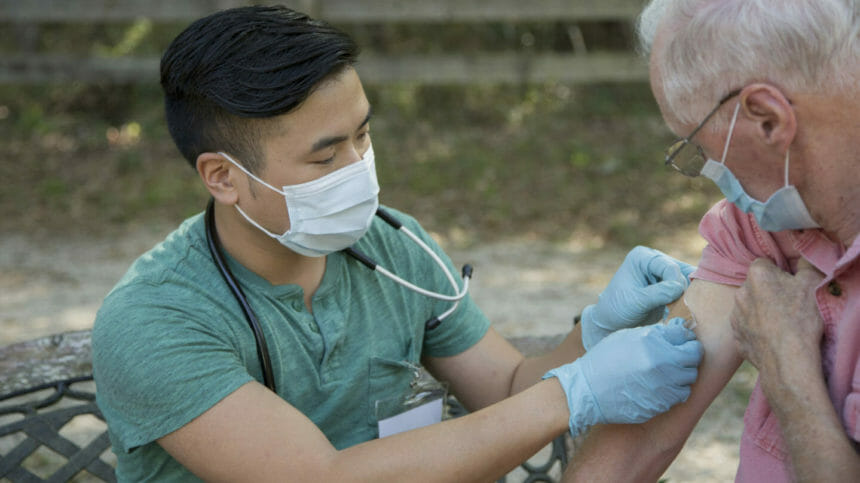
A fourth dose of an mRNA COVID-19 vaccine boosts effectiveness against severe omicron illness to 80% in older adults, according to a new study from the Centers for Disease Control and Prevention.
The study, one of the first to evaluate a second booster against omicron, followed patients with healthy immune systems who were boosted when early omicron subvariants BA.1 and BA.2 were dominant in early 2022.
In adults aged 50 and older, overall vaccine effectiveness was 32% at four months after a third shot of an mRNA vaccine, and increased to 66% 7 days after the fourth shot. Meanwhile, effectiveness against hospitalization was 55% four months after a third dose, and shot to 80% by 7 days after a fourth dose.
It’s important news for older adults, as the initial series of mRNA vaccines lose their potency after about 5 months, the researchers wrote in the CDC’s latest Morbidity and Mortality Weekly Report.
Natural immunity vs. vaccines
Meanwhile, another new study from Yale University has found that the current mRNA vaccines (from Pfizer and Moderna) have nearly three times the durability of protection than natural infection or the Johnson & Johnson and Oxford-AstraZeneca vaccines.
However, natural immunity and vaccination are not mutually exclusive, the researchers noted.
“Many people will have partial immunity from multiple sources, so understanding the relative durability is key to deciding when to provide a boost to your immune system,” they said.
U.S. among countries with most cases
The news comes as COVID-19 cases rise and BA.5 omicron subvariant spreads globally, according to experts at the University of Minnesota. Among more than 5.7 million cases reported in early July, France, the United States, Italy, Germany and Brazil topped the list of most cases, they reported.
The BA.5 variant continues to rapidly evolve, White House COVID-19 coordinator Ashish Jha, MD, said Sunday on ABC’s “This Week.” Although vaccines are not as protective against the new subvariant as they are against the older ones, he said it is still “critical” that older adults especially receive booster shots, reported The Hill.
“If you got your booster, let’s say, last November or December, you don’t have as much protection against this virus as you’d like,” he said.




